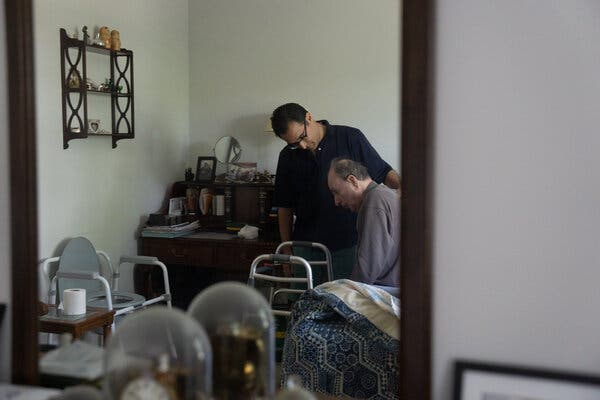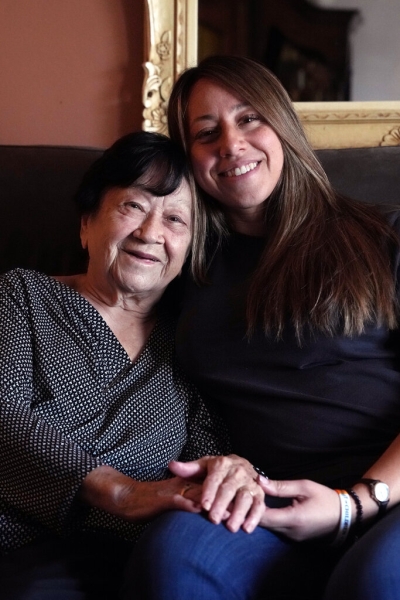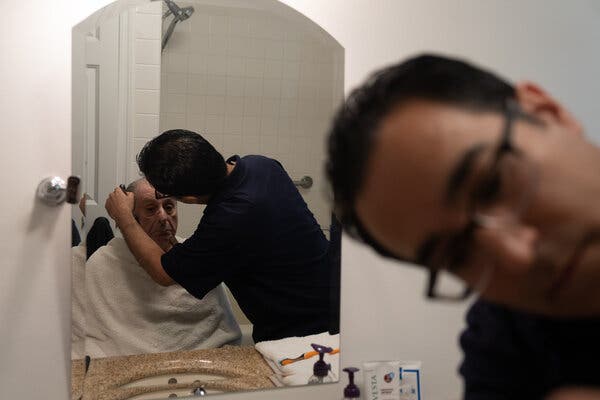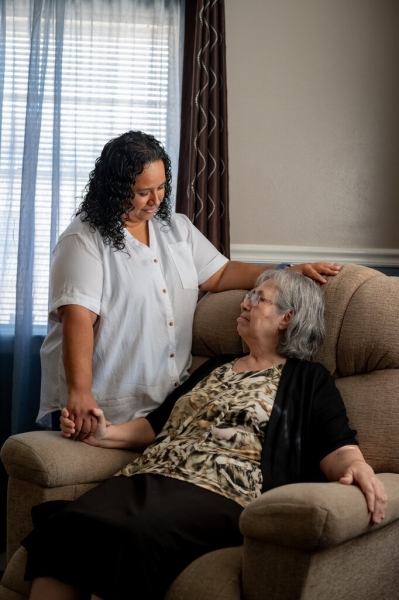Contents
Dying Broke

Dying Broke
Adult children discuss the trials of caring for their aging parents: unreliable agencies, a lack of help and dwindling financial resources.
Natasha Lazartes
39, therapist, Brooklyn

Michelle V. Agins/The New York Times
“It’s been a nightmare. They are so desperate to hire workers that they will take anyone.”
I am 39 years old. I had to care for my father, who passed from cancer in 2019; my mother, who passed in November 2021 from cancer; and since her passing I have inherited the care of my grandmother. She is 97, diagnosed with moderate dementia and is considered high risk to be left home alone. We had been applying for Medicaid long-term care to receive a home health aide since early November 2021. She finally got a home health aide in January 2022, but it’s been a nightmare. They are so desperate to hire workers that they will take anyone. She was left without an aide on many random days with a late-notice telephone call or text message from the aide needing the day off and the agencies not able to find a replacement in time. I have changed agencies multiple times. My husband has been a great support the entire time. We rely on security cameras we installed in our apartment to see how she is doing while we are at work. How is it on a daily basis? It is emotionally and physically draining. The health care system for the elderly is neglected, broken and inadequate to meet any demands, even the basic needs.
Robert Ingenito
44, public information officer, Mamaroneck, N.Y.

My father, who is now 93, had me late in life, at age 49. My mother died from cancer when I was 19. Literally on her deathbed, she said to me, “Don’t put your father in a nursing home.” Now, at 44, I’m married, I have a 6-year-old daughter, and for the past five years my dad has lived with us. I work about 20 hours a week, which allowed me to do something other than being his caregiver. If I had to put a price tag on the quality of care I provided to my dad, it would probably be the equivalent of a high-end assisted-living facility. But it was becoming really hard for myself, my wife and our daughter. His level of care was getting to the point of something I just could not sustain. He couldn’t be left alone. I wasn’t getting any sleep. Recently, I made the extremely difficult decision to move him into an assisted-living facility. Fortunately, he has the financial resources to do that. For most people, that’s not even an option. I have been happy with the level of care that he’s getting, but when I signed the lease, I felt like I was breaking my promise. I tried my best to follow my mom’s wishes. But there’s only so much I could do, and I had to do it.
Karina Ortega
43, caregiver, Dallas

Desiree Rios for The New York Times
“I’m the only one with no children and have always been the one who would take care of my parents. If Mom gets worse and I can’t care for her? That’s something I struggle with.”
My mother was diagnosed with Alzheimer’s in March 2020, but even before then, I knew something was wrong. One day, she went to visit a family friend and was going to donate some clothes to her. Seven hours later, we still hadn’t heard from her. She got lost. Eventually she found a supermarket that was familiar to her and got home. I’m no longer working at all. This has all taken a toll on my life. I do have a younger brother and an older sister, but my sister has a daughter in college and my brother has a 7-year-old. I’m the only one with no children and have always been the one who would take care of my parents. If Mom gets worse and I can’t care for her? That’s something I struggle with. Putting her in a home? In our culture, that’s looked down upon. I was a rebellious teen and she never gave up on me, so how am I going to give up on her? I just can’t see it in me to leave my mom because she needs me.

